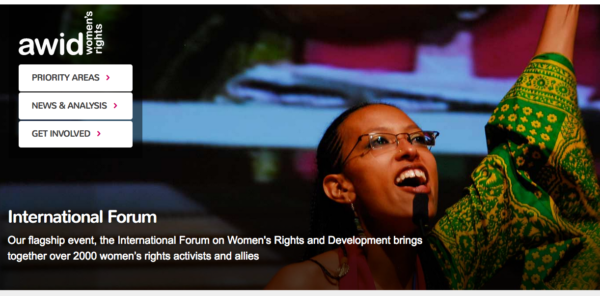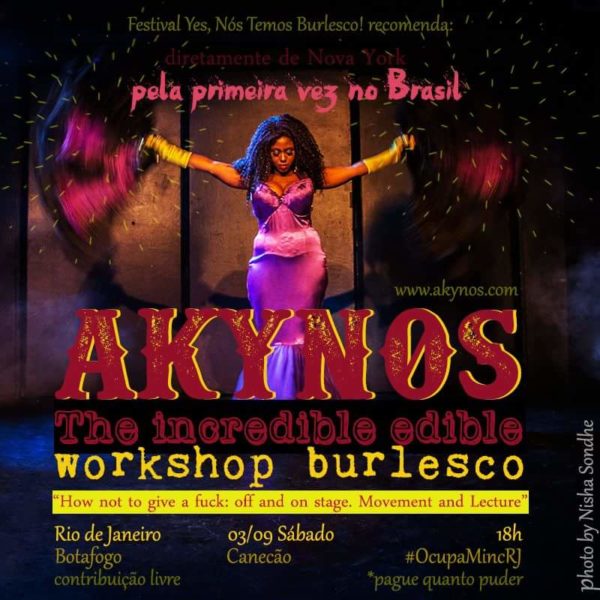The Best Practices Policy Project has submitted a letter of concern to UN Women about their email survey to ostensibly develop an organizational policy position on sex work. The full text of our letter of concern is below and is also available for download.
Sex worker organizations and allies have critiqued this UN process because it uses complex bureaucratic language and is occurring on an extremely short time frame (UN Women’s consultation ends October 16, 2016 October 31 extended deadline). BPPP is also concerned that process is biased towards harmful policies because it is being directed by UN Women Policy Director Purna Sen who has written that prostitution is a form of violence against women and who has dismissed sex worker rights organizing.
Writing a letter of concern about the process to the Executive Director of UN Women by email to <phumzile.mlambo-ngcuka@unwomen.org> is one of several actions groups can take, including signing this Call for UN Women to Meaningfully Consult Sex Workers as they Develop Policy on Sex Work and engaging with the UN Women email consultation process critically by October 16. The NSWP has sent in a response which is a useful example of how we may engage with this process.
October 11, 2016
H.E. Phumzile Mlambo-Ngcuka
Under-Secretary-General of the United Nations
Executive Director, UN Women
c.c. H.E. Lakshmi Puri
Assistant Secretary-General of the United Nations
Deputy Executive Director for Intergovernmental Support and Strategic Partnerships, UN Women
c.c H.E. Yannick Glemarec
Assistant Secretary-General
Deputy Executive Director for Policy and Programmes, UN WomenDear H.E. Mlambo-Ngcuka,
We write to echo fellow human rights advocates’ concerns about UN Women’s process for developing a policy on the rights of sex workers, and to call for UN Women to support a human rights-based approach to sex work and the sex trades. Best Practices Policy Project (BPPP) supports organizations and advocates working with sex workers, people in the sex trade and related communities in the United States, by producing materials for policy environments, addressing research and academic concerns and providing technical assistance. As other advocates have already pointed out, UN Women has failed to conduct in-person regional and national consultations for its process, opting instead for a brief online comment period that will exclude countless voices of directly impacted people. Prior engagement by relevant UN agencies on this issue has involved meaningful sex worker consultation processes and arrived at policies that uphold human rights protections for sex workers and people engaged in sex trades. These documents should guide UN Women’s further engagement on this issue.
We add that this type of process places enormous stress on sex worker organizations, which generally operate with limited or no funding, in environments marked by stigma and ostracism. Across the globe, these organizations are engaged in local, regional, and international struggles to eliminate discrimination, violence and other abuses their members face at the hands of police and other state and private actors. They struggle for the realization of their and their families’ basic human needs, including adequate health services, housing, food, water, education, and economic wellbeing. While it is critical that sex worker organizations be consulted for a policy that will directly impact their access to human rights, it is also important that agencies like UN Women recognize and accommodate for the obstacles they face. This means UN Women should meaningfully involve sex workers in developing the very process through which they will inform any policy that affects them, in order to ensure its accessibility. The principle of meaningful consultation of those most impacted by an issue at hand is at the heart of a feminist approach to social change, and one which we recommend UN Women adopt.
We are alarmed that UN Women’s process is being directed by Policy Director Purna Sen, who has equated sex work with violence against women, and who has portrayed the movement for sex workers’ human rights as one located in wealthier countries. Someone who has taken such a clear stance against recognizing sex workers’ human rights should not be in a position to direct policy development that will impact sex workers on a global scale. Her perspective fails to recognize the important leadership of extensive sex worker collectives and organizations in developing and global south countries. We are concerned that her views have already shaped UN Women’s current process, which has failed to ensure sex workers in developing countries, and sex workers with limited resources in developed countries, are meaningfully consulted.
We echo the call for UN Women to meaningfully consult sex workers across the globe in developing any policy related to sex work, and to ensure their statements uphold sex workers’ human rights and recognize sex workers’ agency and self-determination. We further ask that UN Women follow and publicize transparent, established research standards to determine both the quality of information it receives, and the amount of consultation with directly impacted communities necessary to inform its policy. At this juncture, we believe that without significant changes, the process UN Women has embarked on is neither legitimate nor helpful to the struggle for human rights.Sincerely,
Best Practices Policy Project











 Periodic Review (UPR) beyond our borders to inspire similar campaigns by sex workers and allies in Brazil. The session “Working the Universal Periodic Review: Advocating at the United Nations for sex worker and trans rights” will describe how community groups can engage with the Universal Periodic Review and how this process allows the issues central to the rights of sex workers and transgender people to attention globally and to bring change in country. This is a vital training giving the forthcoming UPR of Brazil in 2017 (shadow reports are due in February 2017 to the Human Rights Council). This session will take place at Ala Mar – Vera Cruz 1-2 on September 9th, at 4.30 pm. Speakers include Penelope Saunders, Monica Jones, Laura Murray and Brazilian colleagues.
Periodic Review (UPR) beyond our borders to inspire similar campaigns by sex workers and allies in Brazil. The session “Working the Universal Periodic Review: Advocating at the United Nations for sex worker and trans rights” will describe how community groups can engage with the Universal Periodic Review and how this process allows the issues central to the rights of sex workers and transgender people to attention globally and to bring change in country. This is a vital training giving the forthcoming UPR of Brazil in 2017 (shadow reports are due in February 2017 to the Human Rights Council). This session will take place at Ala Mar – Vera Cruz 1-2 on September 9th, at 4.30 pm. Speakers include Penelope Saunders, Monica Jones, Laura Murray and Brazilian colleagues.